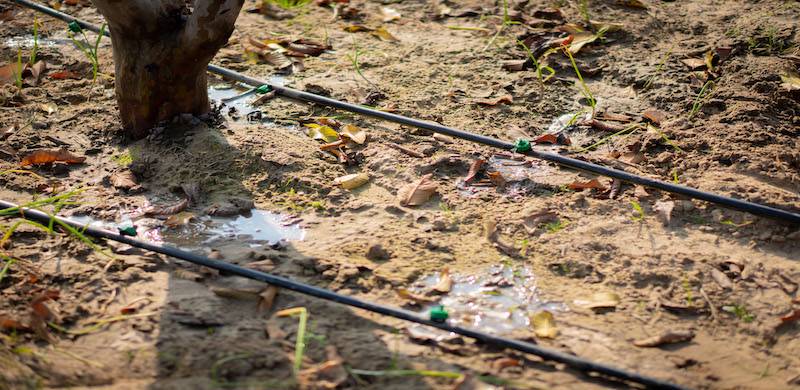
It’s World Water Day and this time around the broad-based consensus of the water economy is centered around the theme: “valuing water”, which means recognizing and considering all benefits – economic, social, cultural and ecological – provided by water. The subject of water takes on more significance for an agrarian economy as valuing water means emphasizing sustainable food security and long-term economic growth of the country.
Because around two thirds of country’s population continue to live in rural areas with agriculture employing over 40 percent of the labor force, this sector has a disproportionate share in freshwater consumption. Farming sector contributes 20 percent to the GDP but consume more than 90 percent of available freshwater resources out of which 50 percent stands wasted due to poor irrigation practices and outdated crop management techniques. At the same time, the rural-urban divide in water economy is ever expanding where the tilt towards rural economy is its promise of food security, leaving cities with growing population and water shortage. The World Bank has also estimated that the four major crops, i.e., wheat, rice, cotton, and sugar cane that use nearly 80 percent of all water generate less than 5 percent of the GDP, around $14 billion per year. Yet, fixation to water intensive crops i.e., cotton, sugar, wheat and rice, fails to bring the rural population out of poverty. And whether it is the shrinking supply with glaciers melting due climate change, or the soaring demand for water from people, agriculture or industries, water is undeniably the biggest environmental challenge facing the country.
At the heart of the issue lies the rising demand for water amid decreasing per capital availability, while the available supply is unfit or polluted. At this point, valuing water means to move a step forward in solving the water crisis by integrating its management at the decision-making level across all sectors – from government to corporate level, to urban centers and to rural farms.
In realizing the benefits, water provides across all dimensions, there is a significant potential for structural reforms to not only safeguard freshwater sources but also ensure that water reaches its equitable, sustainable and productive use.
In its quest to bring efficiency in water use as well as in waste management, Nestlé Pakistan has been a good water steward in Pakistan, with its collective action approach. All its initiatives are aligned with the United Nations Development Goals, SDG 6 on Clean Water and Sanitation and SDG 13 on Climate Action.
Nestlé launched its Caring for Water (C4W) - Pakistan initiative in 2017 which is a good example of how private sector can play its part in conserving shared water resource. The initiative undertakes collective approach to help protect freshwater resources and reduce water consumption inside and outside its factories. The initiative has three pillars; Factories, Communities and Agriculture – all key consumers of water.
Forging collective action approach, Nestlé has certified all four of its sites in Sheikhupura, Islamabad, Kabirwala and Port Qasim by the Alliance for Water Stewardship Standard. The company is also providing safe and clean drinking water to 60,000 people every day, around the areas of its operation.
Nestlé has also partnered with the Pakistan Agricultural Research Council (PARC) and University of Veterinary and Animal Sciences (UVAS) and established sites that pose best farm practices. In collaboration with the Agriculture Department, Government of Punjab, Nestlé has also installed drip irrigation systems across Punjab. Together with its partners, Nestlé has istalled drip irrigation on 152 acres with significant water savings of over 428 million liters.
Nestlé has also partnered with Lahore University of Management Sciences (LUMS) to develop low cost soil moisture sensors that sense the moisture level of the soil and identify areas that need irrigation. It has also developed a software along with Waziup (an organization based in Italy) that enables the farmers and the researchers to see the soil moisture level remotely on their computer screen/smart phone to help save water and increase productivity.
As the theme rightly reflect, valuing water means more than only placing a monetary value on it. Since water is a public good, its supply to some will always deprive some others from having it. Its mismanagement can not only jeopardize the agriculture sector, but it can also lead to deteriorated public health indicators, contamination, pollution, food insecurity, unequal access and so on. Water is the basic raw material used in almost every industry to produce virtually everything. Its unavailability is not only attached to a health ecosystem but also needed to ensure sustainable business practices.
It is evident that corportae sector entities, already involved in implementing the water stewardship, can play an integral role towards enhancing capacity of other businesses or sectors such as the agriculture sector in Pakistan which is still based on conventional practices and rudimentary concepts of irrigation. Also because of the slow innovation taking place in the agriculture sector, private sector needs to come forward to help this sector through initiatives such as C4W-Pakistan in order to reduce the water wastage in agriculture.
No single entity or organization can create an impact in isolation which is why collective action or collaboration is key to ensure sustainable water resources. Through participation in policy and advocacy relevant to water management, stakeholders can play a key role in this global discussion on valuing water.
